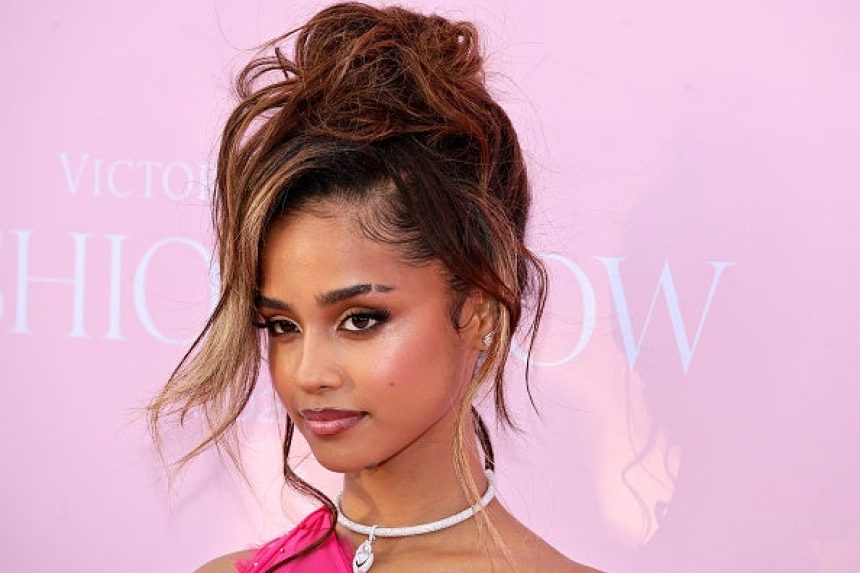Your support helps us to tell the story
From reproductive rights to climate change to Big Tech, The Independent is on the ground when the story is developing. Whether it’s investigating the financials of Elon Musk’s pro-Trump PAC or producing our latest documentary, ‘The A Word’, which shines a light on the American women fighting for reproductive rights, we know how important it is to parse out the facts from the messaging.
At such a critical moment in US history, we need reporters on the ground. Your donation allows us to keep sending journalists to speak to both sides of the story.
The Independent is trusted by Americans across the entire political spectrum. And unlike many other quality news outlets, we choose not to lock Americans out of our reporting and analysis with paywalls. We believe quality journalism should be available to everyone, paid for by those who can afford it.
Your support makes all the difference.
Tyla has spoken out about her identity after she previously received backlash for calling herself “colored.”
The “Water” singer first called herself a “colored South African” in a TikTok back in 2020 which later resurfaced in 2023 with many people pointing out that the word “colored” was previously used as a negative term in the United States to describe Black people. However, in the March 2025 issue of British Vogue, published on Tuesday, the singer addressed the negative feedback she received.
She recalled feeling like she had “no control” at the time. “People took it and… It just went so far that I didn’t know what to do. The way people painted me… And I understand that word is a sensitive word to people, so I don’t blame people for being touched about it,” she told the publication.
“I just would have wanted an opportunity for people to actually truly listen and learn.”
Tyla was previously asked about the incident while on The Breakfast Club with host Charlamagne tha God back in June 2024, but she refused to speak on it at the time.
“Me choosing not to say anything, I’m happy that I didn’t,” she told British Vogue about the radio show appearance. “I didn’t want to explain my culture and something that is really important to me on a platform that is just going to be purposefully misconstrued.”
“I’ve explained it a lot of times before, but people took that and put words in my mouth. They said a whole bunch of things that I never said and ran with it,” Tyla continued.
She explained South Africa experienced its own period of segregation where anyone who wasn’t white was classified as “colored.”
“They chose to call people that were mixed ‘colored.’ And I’m not gonna lie, it was hard because all my life, obviously I knew ‘I’m Black’ but also knew that ‘I’m colored,’” the “Truth or Dare” singer said.
“So when I went to America and people were like, ‘You can’t say that!’ I was in a position where I was like, ‘Oh, so what do I do? What am I then?’”
Tyla said this wasn’t the first time she’s questioned her identity as she recalled receiving negative comments about both her hair and skin color in elementary school. “I went to a very white primary school,” she told British Vogue.
“I really hated myself. And then I went to high school, which was predominantly Black and cultured, and that’s where I actually grew to love myself and became really proud of who I am.”
Since the backlash first started, Tyla admitted that she acknowledges that there will still be people who don’t fully understand her explanation but she feels comfortable with her own identity at this point.
“I’m at a point where I know who I am. I know I’m a Black woman and I know I’m a colored woman as well and you can be both,” she said. “And the people that care to learn, they understand now. And that’s enough for me.”







